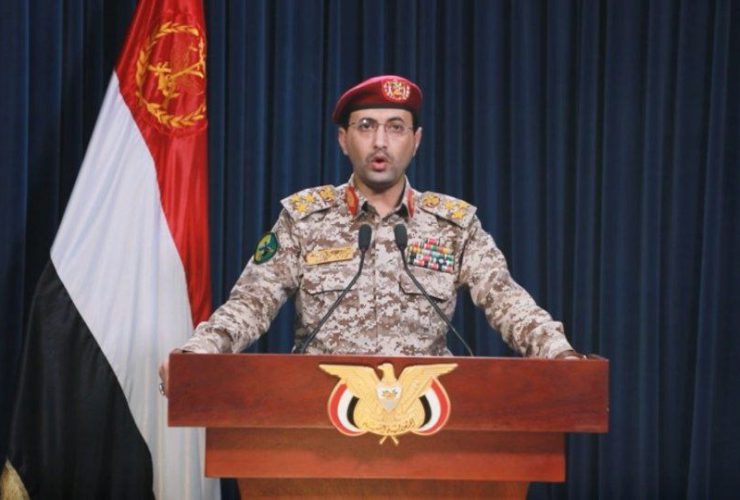The Thirty Suggestions of Abu Ayyub al-Misri
The media institution called “The Al-Himma Library”, which publishes pamphlets and manifestos for the Islamic State, published a new edition of a document entitled “Thirty Suggestions for Islamic State Emirs and Soldiers”. The document was originally authored by Abd al-Mun’im bin Izz al-Din al-Badawi, also known as Abu Hamza al-Muhajer and as Abu Ayyub al-Misri. Al-Misri was a prominent Egyptian Jihadist official who served as a leader of Al Qaida in Iraq after the death of Abu Musab al-Zarqawi, and was killed in a raid on his home in April, 2010. The document was initially published in November 2010 by The Al-Himma Library, which operated under the auspices of the Islamic State of Iraq. In the introduction, which was composed by the Al-Himma Library, it was explained that the new edition was published five years after al-Misri’s death (the first new edition was published in January 2015, and the second in February 2016), in hopes that the mujahedeen and the emirs in the Islamic Caliphate would find it beneficial.
The timing of the document’s republication is not sufficiently clear, since the suggestions do not offer any new strategies or information that wasn’t familiar beforehand. The document consists of extremely general guidelines and advice, which don’t indicate any change in established patterns of thought. And in any case, nothing current or concrete regarding the present state of affairs on the ground was added to the document – which was written several years ago.
It is possible to explain the appearance of the document in relation to the ongoing conflict between Al-Qaeda and the Islamic State, and to interpret the republication as another measure taken by ISIS in the framework of raising awareness of its position regarding Al-Qaeda. It seems that the document was published with the intention of clarifying the difference between Al-Qaeda in the present and Al-Qaeda under the command of past leaders such as Abu Musab al-Zarqawi and Abu Hamza al-Muhajer – before the organization strayed from the “straight path”. It was therefore an attempt to legitimize the Islamic State, and present it as an organization that emulated Al-Qaeda in its foremost structure, in order to “restore it to its original splendor”.
The document is divided into two sections, and includes a total of sixty suggestions or instructions – thirty are directed at Emirs, and thirty are intended for soldiers and fighters. The suggestions consist of practical advice for managing jihad (for example, ensuring that the equipment and vehicles are ready for operations, taking strict measures regarding secure communications, and choosing the battlefield wisely). The suggestions also include religious-spiritual directives which place emphasis on the aspect of faith (for example, attaining religious knowledge, overcoming desire, prayer, etc). It is important to note that in order to give the suggestions religious validity, verses from the Koran and quotes from the Hadith are interwoven into the text.
Below is a short summary of the suggestions as they appear in the document. In the framework of the suggestions for the Emirs, al-Misri specifies that every Emir must:
- Fight in order to glorify Allah’s name.
- Act in a just and wise manner with the civilians living under his rule.
- Facilitate consultation and discussion sessions in order to maintain a true Sharia Council.
- Be attuned to the opinions and advice of those to disagree with him.
- Monitor the goings on among the civilians living under his rule.
- Stringently observe the religious and moral laws, and distance himself from licentious company.
- Conduct himself with patience, even during crises.
- Avoid wearing clothing that sets him apart from his followers.
- Conduct himself conscientiously, and avoid impulsive action.
- Send strong fighters to battle alongside weaker ones, and safeguard his forces against spies and agents.
- Ensure that suitable equipment is taken to battle.
- Provide his soldiers with food and drink to preserve their strength.
- Check the status of his soldiers’ vehicles, weapons, and supplies – particularly before an operation.
- Make sure that no more than three fighters man each vehicle, and set up secure communications lines between the vehicles.
- Bolster his soldiers’ emotional strength, and boost their morale.
- Carefully choose the battle site, and avoid maneuvers at distances so great that a safe return of his soldiers is jeopardized.
- Apply battle strategies while avoiding enemy ruses (ambushes, attacks from a distance, etc.).
- Learn how to take advantage of opportunities.
- Know how to correctly choose those who will embark on suicide missions, while differentiating between those whose deaths will encourage the Muslims, and those whose deaths will weaken Muslim morale (for example, an exceptional commander should not be sent on a suicide mission).
- Forbid his soldiers from killing or taking captive other soldiers, if the act will break down the unity among the forces.
- Avoid forbidden forms of bloodshed.
- Demonstrate foresight, and not be tempted to carry out seemingly simple operations that may lead to problems in the future.
- Reward those who act commendably, and punish those who do wrong (but the punishments should be proportionate).
- Act fairly with his subordinates, and not treat them unjustly.
- Get close to the people in order to earn their love and admiration.
- Treat elders, religious scholars, and men of noble origins with respect.
- Meet the needs of the families of shahids (martyrs) and prisoners.
- Know how to best select contacts who will operate opposite the armed tribes and other groups in the battle arena.
- Use good judgment and tactics – rather than force – when coping with rivalries among the factions operating in the arena.
- Aspire and make a concentrated effort to avoid laxness and weakness.
In the framework of suggestions for the soldiers and fighters, al-Misri specifies that every soldier must:
- Demonstrate loyalty to Allah in every word and action.
- Acquire a minimum of religious knowledge in order to be aware of what he is fighting for.
- Express unbiased allegiance to Allah.
- Abstain from accusing individuals of heresy without sufficient proof.
- Avoid granting unauthorized assurances of security.
- Demonstrate obedience and abstain from any acts of rebellion.
- Pray regularly.
- Take care not to be overcome by euphoria or swayed by flattery.
- Take care not to be influenced by anarchy or deception.
- Overcome desires, and fast.
- Conduct himself honestly, and never lie.
- Maintain good relationships with the other fighters, and obey the most senior veterans.
- Refrain from publicizing the faults and deficiencies of the other fighters.
- Treat the local population kindly, and cause them to appreciate Islam.
- Obey the Emir, and avoid making false accusations against him.
- Refrain from hiding information from the Emir, and avoid all acts of treachery.
- Treat the Emir with tolerance, even if his rule is tyrannical.
- Always post guards at night.
- Facilitate physical training exercises and combat training as means of preparing for battle.
- Uphold Rabat (defence of Muslim land against enemies).
- Aspire to face the enemy from a position of faith in Allah and prayers, and not from a place of pride or enthusiasm.
- Act courageously, remembering and reminding others of the enemy’s wickedness.
- Bring all necessary equipment and provisions needed for jihad.
- Maintain unity among the forces.
- Don’t fear the enemy, even when outnumbered.
- Refrain from laziness and idleness.
- Advance towards the enemy, and avoid retreating.
- Call out “Allah Akhbar” when the enemy is sighted, but not during battle.
- Avoid looting and plunder.
- Heed God’s words and stand as one in the face of the enemy. Heed the Prophet’s words, and carry out raids against heretics.
- Engage in frequent prayer for the Leader of the Faithful, and for all other Muslims.






